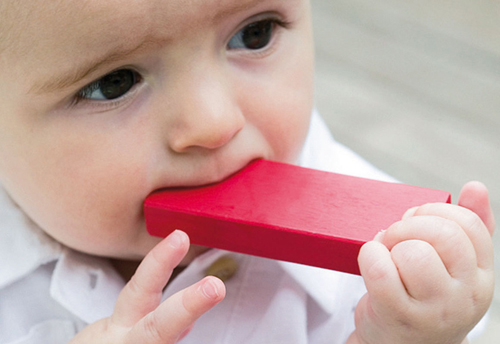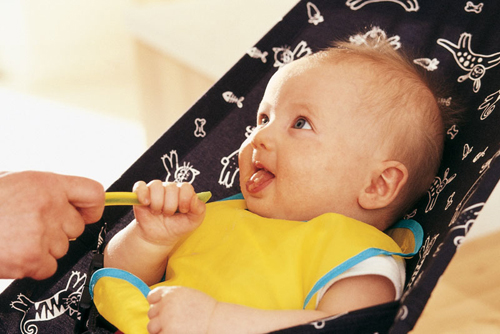Is My Baby Ready for Solid Food?
You may find that your baby
is hungrier than usual—but this doesn’t necessarily mean that he’s ready
for solid food; you may just have to increase his formula intake, or
allow him to nurse and feed more often.
Your baby is probably ready for solids if:
He starts demanding feeds more often, still seems hungry after his usual milk feed, and has stopped sleeping through the night
He seems to show interest in what you are eating
He is able to sit up with support and control his head
He can move food around his mouth when you feed him, or makes chewing motions even with no food in his mouth
He can confidently put things into his mouth
When to start
The American Academy
of Pediatrics says that most babies can be introduced to solid foods
between four and six months of age. Of course, each baby is different,
and the exact timing will be decided by you and your baby’s
pediatrician. You’ll continue breast- or bottle-feeding for most of his
meals, even after beginning solid foods.


Symptoms of Food Allergies
Although food
allergies are uncommon in babies, they are on the increase, so if you
have food allergies in your family on either side, it’s a good idea to
be aware of the symptoms before you begin introducing your baby to solid
food. Contact your doctor if you’re concerned.
Look out for:
Symptoms can appear
while your baby is feeding, or directly after, or within 48 hours. If
breathing problems develop or his face swells, call an ambulance.
Food intolerance
is slightly different, and doesn’t involve your baby’s immune system.
Watch for symptoms suggesting that your baby can’t tolerate certain
foods well, since this can affect the nutrients he gets. Look out for:
Chronic sniffling and excess mucus
Constipation or regular diarrhea
Eczema or skin rashes
Unusual fatigue
Constant indigestion or spitting up
Itchy eyes and skin
Sleep disturbance
Wheezing